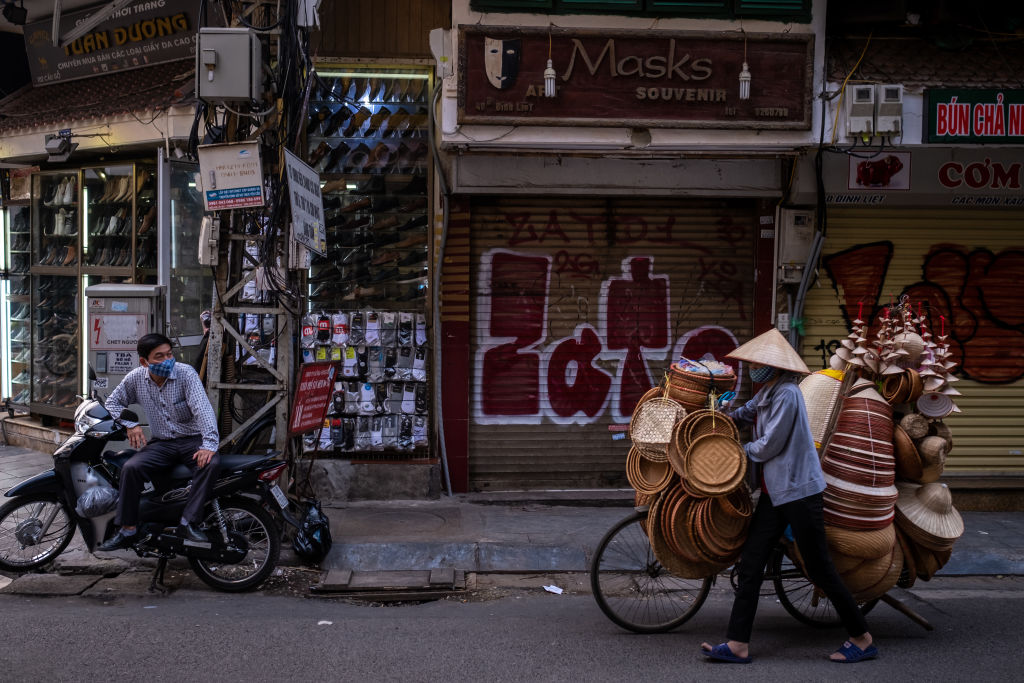
The coronavirus outbreak will have a profound impact on emerging Asian economies and may push some countries in the region into a recession, the World Bank warns.
In a bleak report released Monday, the Washington-based institution said the pandemic will inflict significant economic pain on all countries, and could throw millions in the Asia Pacific region into poverty.
“Countries in East Asia and the Pacific that were already coping with international trade tensions and the repercussions of the spread of COVID-19 in China are now faced with a global shock,” said Victoria Kwakwa, the World Bank’s Vice President for East Asia and the Pacific.
Under the worst case scenario, which assumes a prolonged pandemic with more severe effects, Asian economies would contract 0.5%, the report estimates. Those conditions could force 11 million people in the region into poverty, and see 24 million fewer people escaping poverty than would have in the absence of the virus.
Households most at risk of falling into poverty rely on sectors particularly vulnerable to the impacts of COVID-19, including tourism in Thailand, Cambodia and the Pacific islands, and manufacturing in Cambodia and Vietnam. “The risk of falling into poverty is particularly high among informal sector and self-employed workers who lack paid sick leave or other forms of social protection,” the report says.
Even under “baseline” conditions that assume strong recovery efforts, the bank forecasts growth in developing economies in the region will shrink to 2.1% in 2020, compared to 5.8% recorded in 2019.
In China, the world’s second largest economy, growth is projected to slow to 2.3% this year, or in the more pessimistic scenario, drop to 0.1%, according to the bank. China reported growth of 6.1% last year, which was its lowest GDP growth since 1992.
Read More: A Silent Epidemic? Experts Fear the Coronavirus Is Spreading Undetected in Southeast Asia
To offset some of the pain from the pandemic, governments in the region should invest in healthcare capacity and provide subsidies for sick pay and healthcare, the report says.
“In addition to bold national actions, deeper international cooperation is the most effective vaccine against this virulent threat,” Aaditya Mattoo, Chief Economist for East Asia and the Pacific at the World Bank, said in a press release. “Countries in East Asia and the Pacific and elsewhere must fight this disease together, keep trade open and coordinate macroeconomic policy.”
Such a sharp downturn could have severe effects on the global economy. While the World Bank has not yet released forecasts for the rest of the world, the head of the International Monetary Fund said last week that it is clear the global economy has now entered a recession on par with or worse than the 2009 slowdown.
COVID-19 has infected more than 786,000 people in over 175 countries or regions.
More Must-Reads From TIME
- The 100 Most Influential People of 2024
- Coco Gauff Is Playing for Herself Now
- Scenes From Pro-Palestinian Encampments Across U.S. Universities
- 6 Compliments That Land Every Time
- If You're Dating Right Now , You're Brave: Column
- The AI That Could Heal a Divided Internet
- Fallout Is a Brilliant Model for the Future of Video Game Adaptations
- Want Weekly Recs on What to Watch, Read, and More? Sign Up for Worth Your Time
Write to Amy Gunia at amy.gunia@time.com